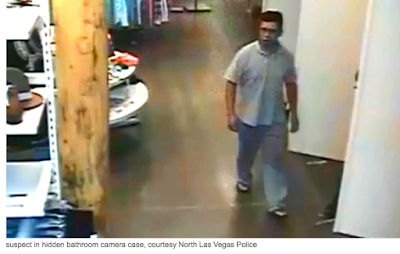The default state of Internet privacy is a travesty. But if you're willing to work hard, you can experience the next best thing to absolute Internet anonymity...
1. Find a safe countryFirst, you would have to be physically located in a country that doesn't try its hardest to spy on you. Your best option is to find a country with good Internet connectivity that doesn't have enough resources to monitor everything its citizens are doing...
2. Get an anonymizing operating systemNext, you'll need an anonymizing operating system that runs on a resettable virtual machine running on secure portable media. The portable media device should use hardware-based encryption or a secure software-based encryption program. One of the top products on that list is
Ironkey Workspace...
3. Connect anonymouslyNext, you'll need to connect to the Internet using an anonymous method. The best approach would probably be to jump around random, different, open wireless networks, public or otherwise, as much as possible, rarely repeating at the same connection point. Barring that method, you would probably want to use a device built for anonymous wireless connections, like
ProxyGambit...
4. Use Tor
Whatever Live OS and Internet connection method you use, make sure to go with an anonymizing browser, such as a
Tor-enabled browser...
5. Don't use plug-insIt's very important to remember that many of today's browser plug-ins, particularly the most popular ones, leave clues that reveal your identity and location. Don't use them if you want to preserve your anonymity.
6. Stick with HTTP/SDon't use any protocols other than HTTP or HTTPS. Typically, other protocols advertise your identity or location. When working with HTTPS, use only handpicked, trusted certification authorities that don't issue "fake" identity certificates.
7. Avoid the usual applicationsDon't install or use normal productivity software, like word processors or spreadsheets. They, too, will often "dial home" each time they're started and reveal information.
8. Set up burner accountsYou'll need a different email address, password, password question answers, and identity information for each website if you take the risk of creating logon accounts. This particular solution is not only for privacy nuts and should already be practiced by everyone already.
9. Never use credit cardsIf you plan to buy anything on the Internet, you can't use a normal credit card and stay anonymous. You can try to use online money transfer services such as PayPal, but most have records that can be stolen or subpoenaed. Better, use an
e-currency such as bitcoin or one of its competitors...
Each of these anonymizing methods can be defeated, but the more of them you add to your privacy solution, the harder it will be for another person or group to identify you...
more
 He was “batting his eyelids in the most unnatural way,” added Mr Coqueraut. “Then I understood it. He was deciphering signals in Morse code.”
He was “batting his eyelids in the most unnatural way,” added Mr Coqueraut. “Then I understood it. He was deciphering signals in Morse code.”











